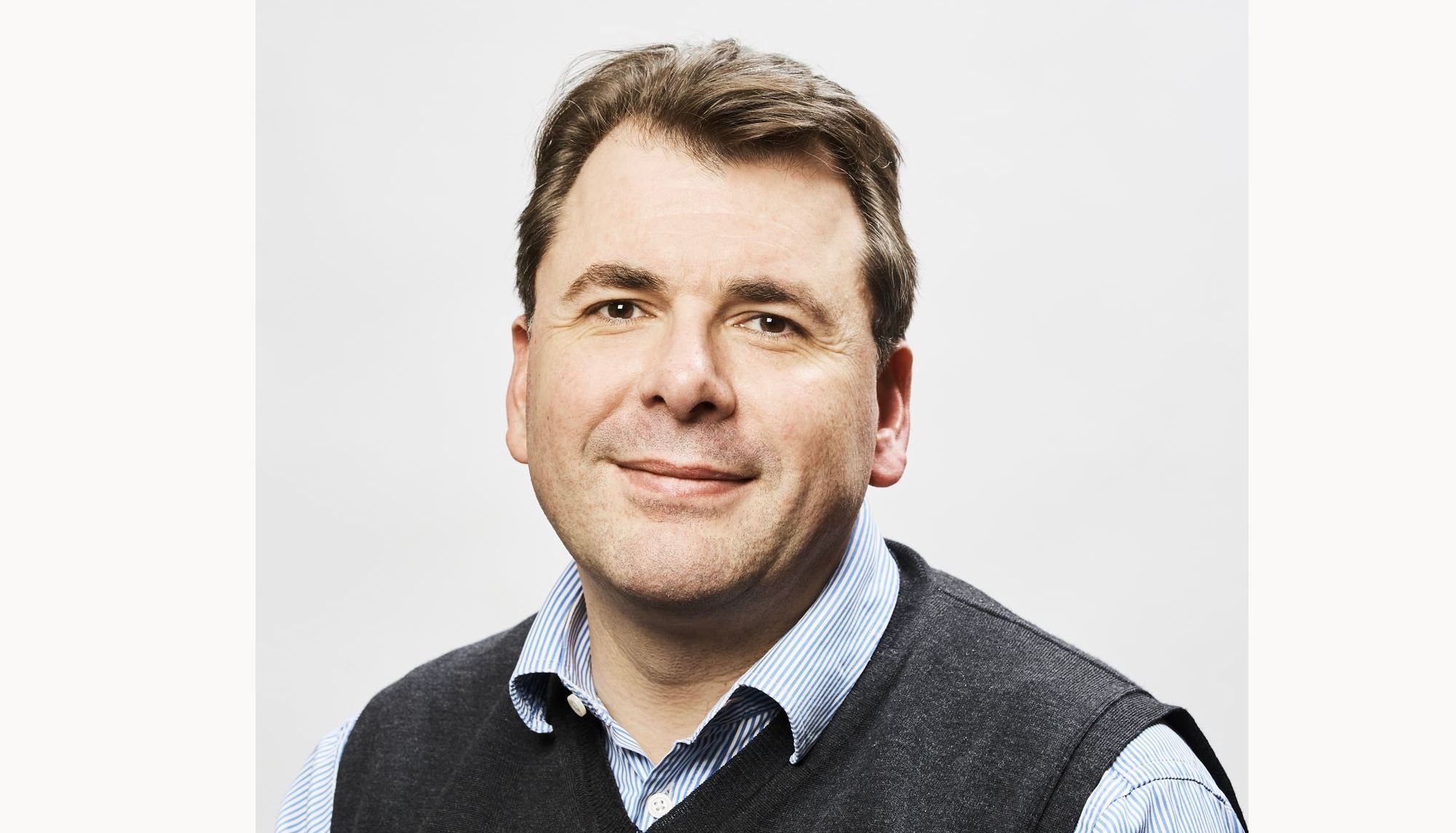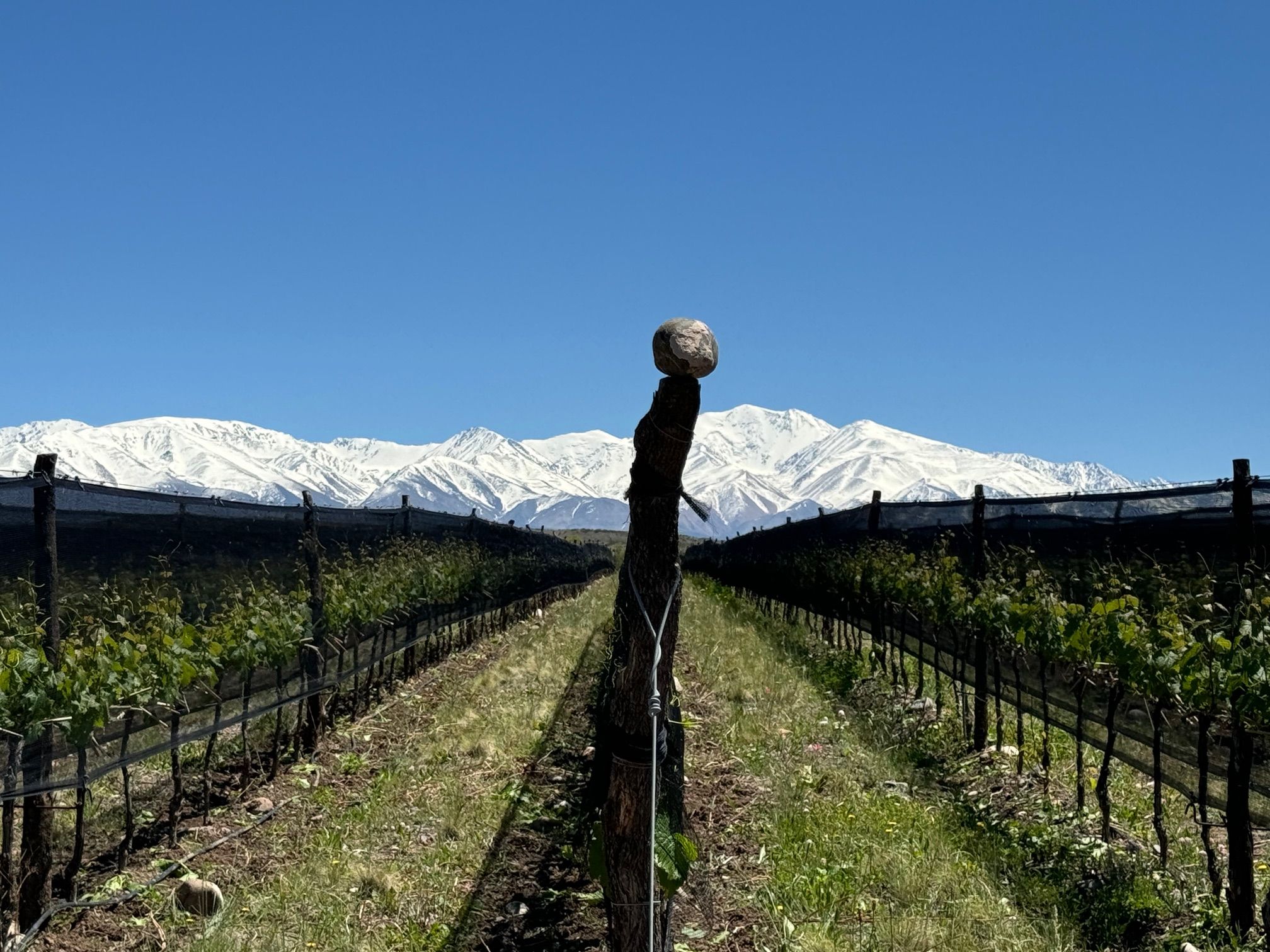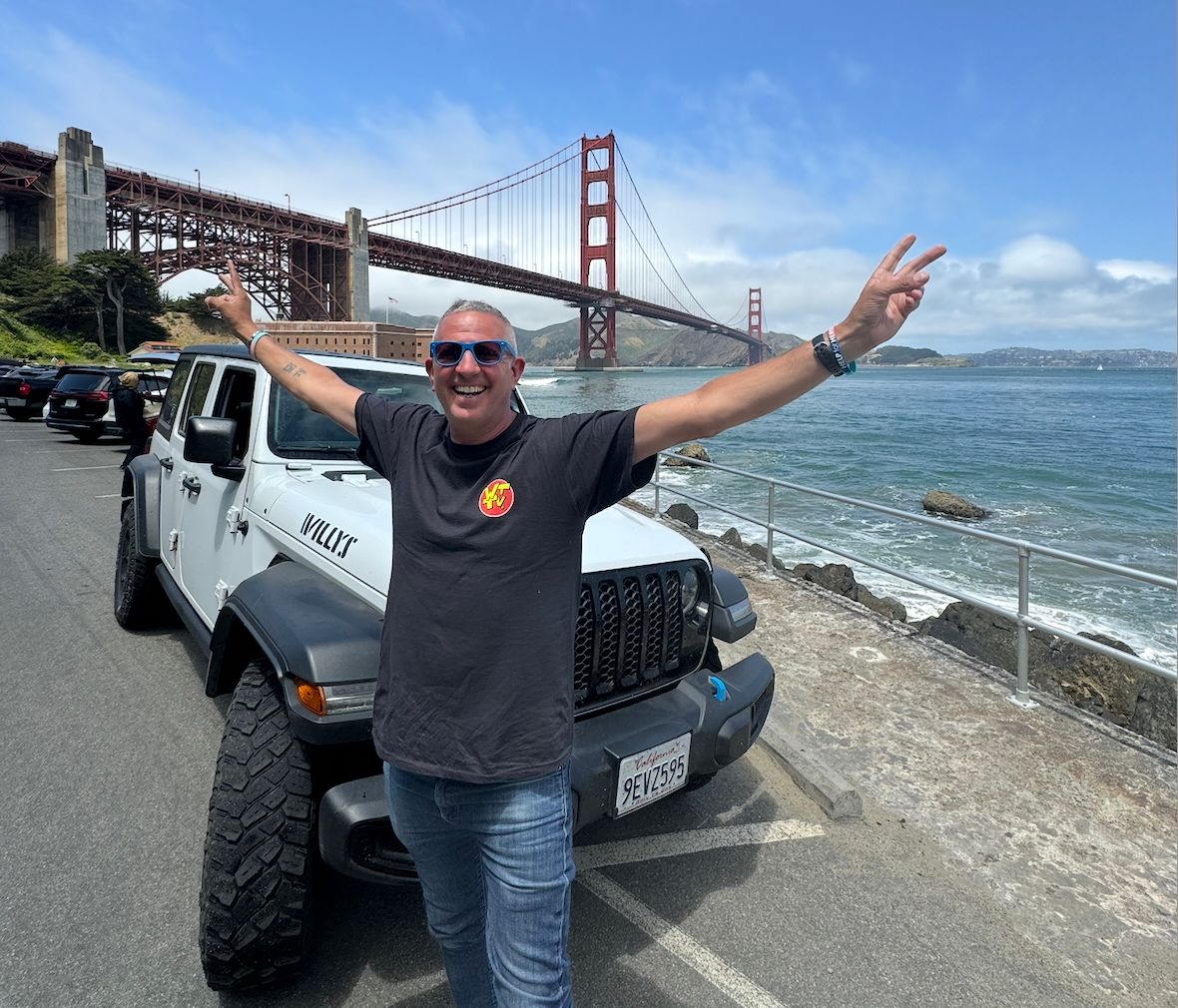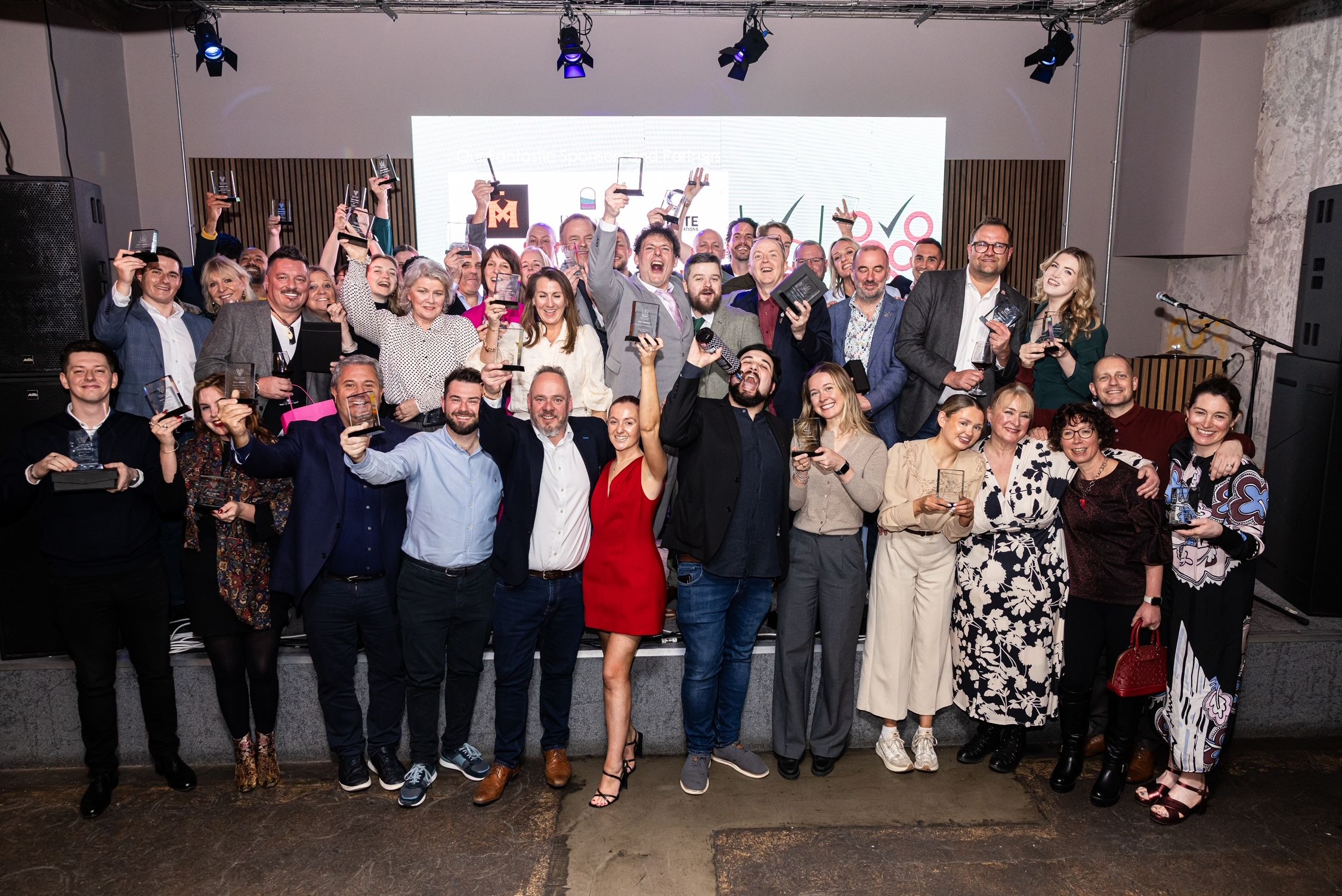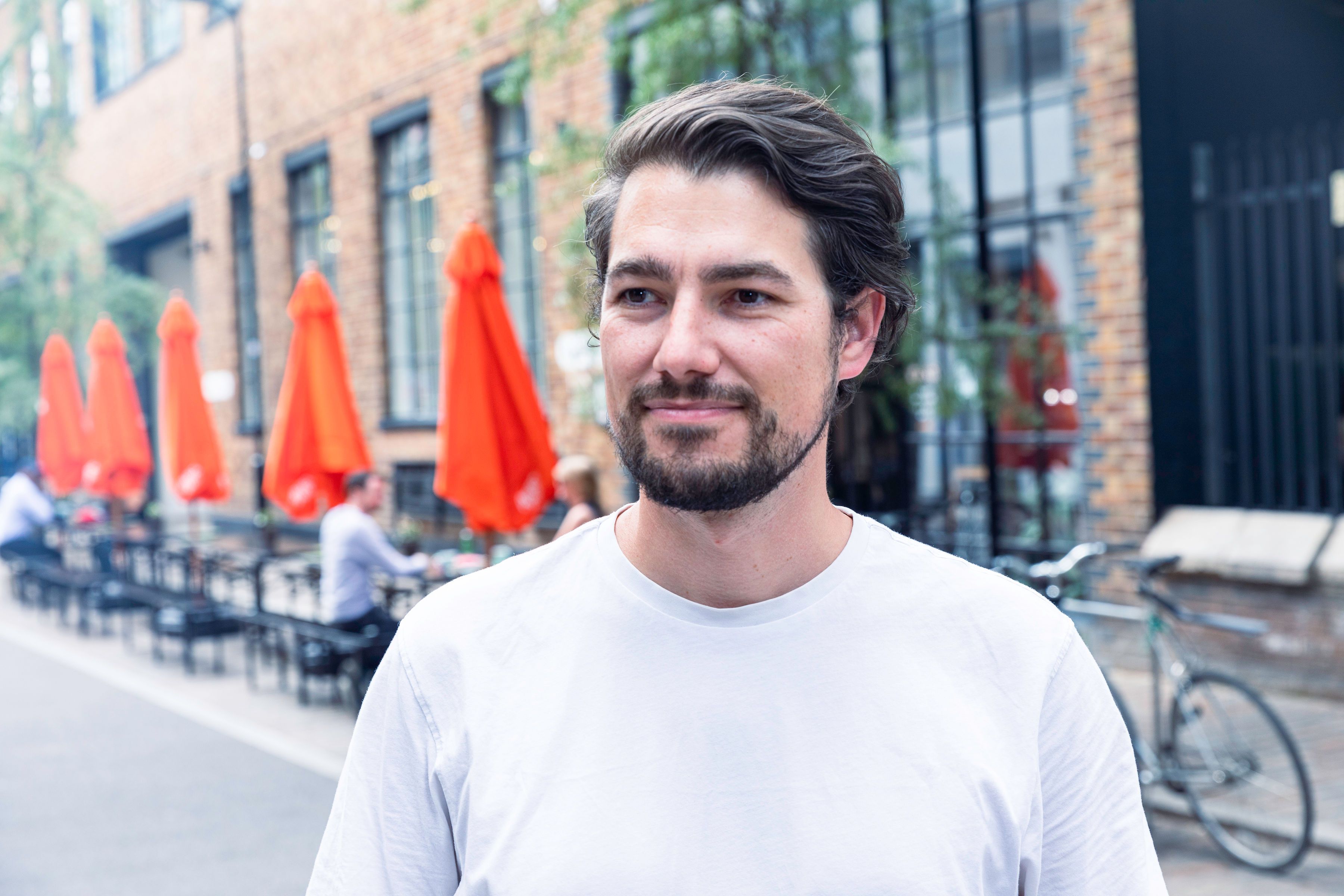Kingsland Drinks Group has evolved into what it now sees as offering a ‘complete service’ to any customer looking for a bottling, packing, brand creation and design, sales, marketing and distribution solution in the UK.
It’s always good to start a business profile with a great statistic. So try this one on for size. One in every eight bottles of wine consumed in the UK comes out of Kingsland Drinks. An operation that runs 24 hours a day and 363 days a year (even Kingsland takes Christmas Day and Boxing Day off).
Which goes some way to explaining just how integrated and important the business has now become to the UK wine and spirits industry.
Ed Baker does not share that type of information to show off, or brag. Far from it. That’s not the Kingsland way. It’s mentioned more as a gentle reminder to illustrate just how far the company has come and how integral its services are to both key national and regional customers that rely on it for so much of their drinks turnover.

Ed Baker and his team have worked hard to make Kinglsand Drinks a one stop shop for its customers looking for branded, bulk or bottled wine that can be packaged in other formats, working with a network of global producers or creating drinks from scratch
It’s not just that “bottling business just outside Manchester”. Although that clearly is still its bread and butter, on which the rest of the company has been able to grow, diversify and offer so many more services.
As it now works with customers in all channels of the trade, Kingsland Drinks Group is ideally placed to track, monitor and respond to national and local drinks trends, says Baker. A position that has arguably cemented its role in the sector even further through the long months of lockdown – and now re-opening – that has seen demands on its services fluctuate between the major supermarkets, grocery retail, and online, to regional and national on-trade.
Having its feet, hands, fingers and toes in all channels of the trade means it is able to upscale or switch resources and people accordingly, he adds. But with 500 staff to choose from it is well equipped to handle sudden upswings in demand.
Doubled in size
Kingsland Drinks Group has come a long way in a relatively short period of time under Baker’s control. He joined the company in 2014 when it was handling 65 million litres of wines and spirits a year. It has now doubled that and is up to close to 150 litres, of which wine accounts for a good 90%.
But that does not tell the full story, says Baker. It has been able to expand the business by offering a wider range of services, with a greater focus on different packaging formats – from cans, to pouches and bag-in-box – and styles of drink, including flavoured spirits and a raft of new low and no alcohol products now being produced at Kingsland.
“That is now very much part of what we do and where we have been able to grow over the last two to three years,” says Baker.
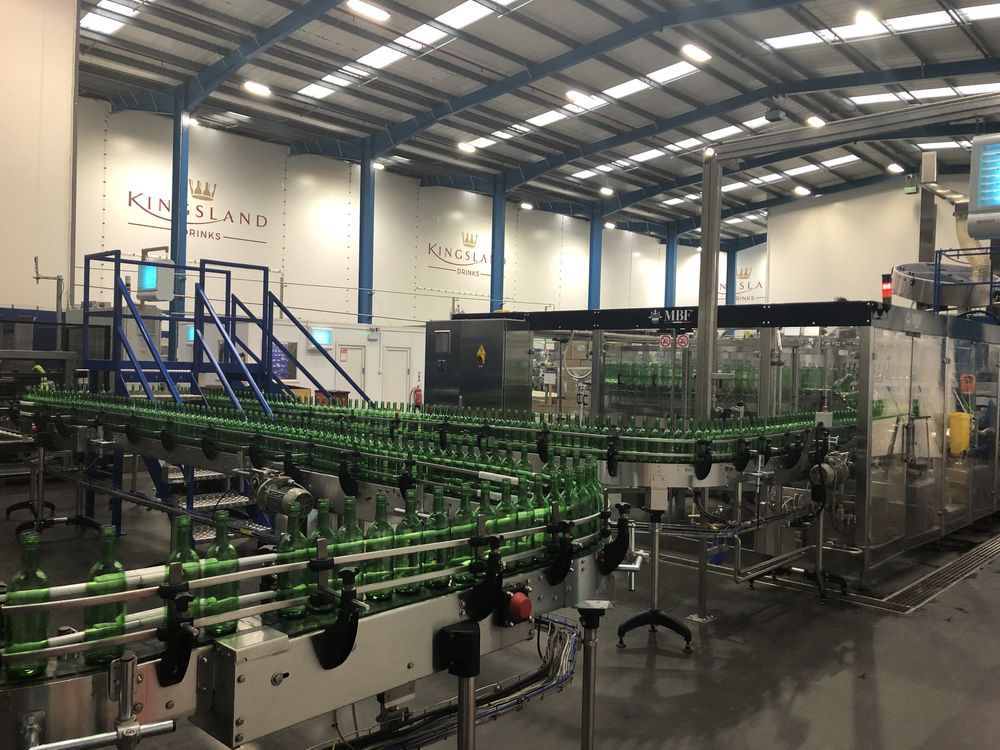
Kingsland has become one of the bespoke bottling plants in the UK capable of working across a number of formats including cans and carbonated drinks
It has also opened the door and introduced the company to a lot more drinks operators on the spirits side of the fence, as well as newcomers to the market looking to grab their share of new areas such as low and no. “It’s important as a company that we are able to do that,” he adds. “We are not just a wine business. Yes, our core is based on wine, but the wider Group offering means we are able to give more opportunities to our customers, and it also spreads the risk and gives us different levers to play with as the market changes.”
It means Kingsland Drinks Group is relevant to its multiple customers in different ways. It might be doing a straight packing and bottling contract for a major supermarket or restaurant chain, but it could also be working with them on creating an exclusive, bespoke brand, devised and brought to market by the Kingsland team.
“We now have a mix of different strategies and strands of the business,” explains Baker. “We try and give our customers a smorgasbord, if you like, of different options and opportunities in how they work with us.”
He adds: “We can source the liquid for you, design you a label and have a great insights team to work out which market a particular product is suitable for and then have a demand and supply team to make it happen right through to warehousing and dispatch.”
It means Kingsland can now have a much “deeper and long term relationship with any customer” as they have so many different services that they can “pick and mix from”. He even talks of “embedding” themselves with certain key customers as they become an important part of their business.
“Ultimately we are here to provide them that all round service. Where we can work with and alongside them and, importantly, then grow with them.”
He adds: “If you are a brand owner, or a major multiple then you are trying to make your life as easy as possible. You don’t want to go to three packers to satisfy all your formats. You want one party to do it all for you. One person you can trust.”
Sound investment
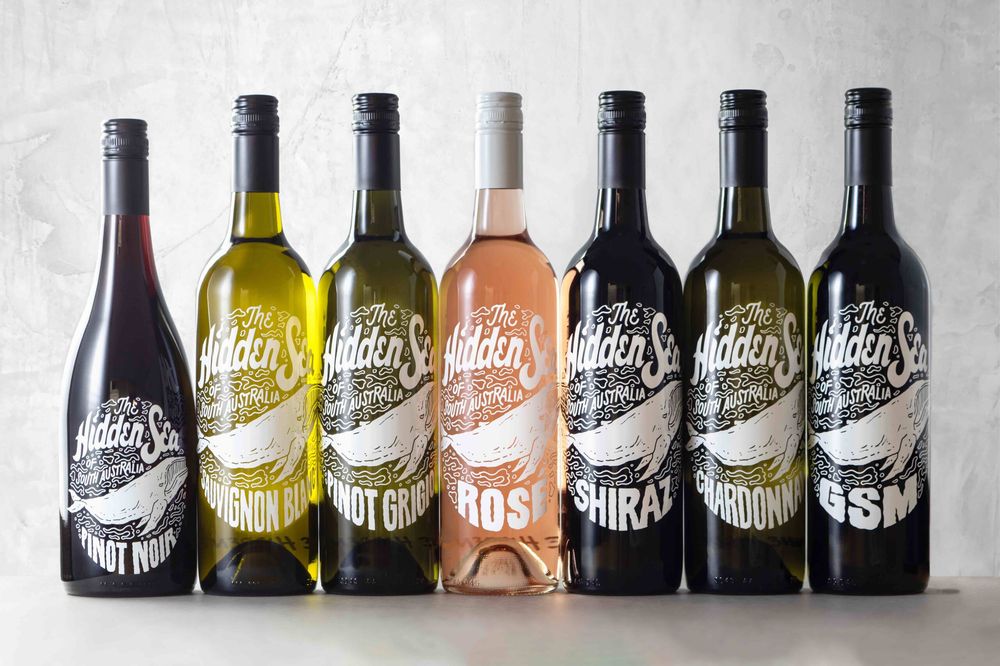
Hidden Sea bottles fit very well into Kingsland’s sustainability drive
But customers can only make those choices if the investments have been made to build up the right sort of services in the first place. That is where Baker relies on the Kingsland Drinks Group team to “identify” where it needs to be adding more resources in order to ramp up its capabilities in any given area.
It’s then his job, along with the senior management team, to ensure it manages those new services in keeping with market trends. For example, during the pandemic demand for bag-in-box “went through the roof” when people were happy to stock up on larger formats. So, it was right to invest in more bag-in-box packaging capacity, but not so much that it would be obsolete once demand drops back to more normal times. Similarly it has introduced new carbonation lines to cater for the increase in sparkling drinks.
“Pre Covid we had already invested in being able to handle everything from pre-mixes, RTDs, no alcohol spirits, to spiced and flavoured rums. We can also do spritzers. So as and when the market moves more into those areas we have the capability to service our customers.”
It has also, though, been a time for Kingsland Drinks Group to invest not just in in its ability to pack, for example, low and no alcohol products, but to make them too.
With such varied quality in the low and no category, the Group has seen an opportunity to create more products of its own. It now has four people dedicated to working on developing recipes and creating new products to test, trial and sell. Similarly they are working on new products for the growing spritz, mixed and flavoured spirits categories.
All part of ensuring Kingsland Drinks Group is in a position to offer its customers “drinks solutions” before they even realised they need them.
“We have invested to give our ourselves the capability of doing so,” stresses Baker.
It’s why it has taken on two of its own graphic designers to help design and develop brands in house. They work hand-in-hand with the brand development teams rather than wasting time by contracting them out.
“Our insights team keeps on top of all market data so that we can identify trends in the market and can suggest gaps to our customers.”
Core customers
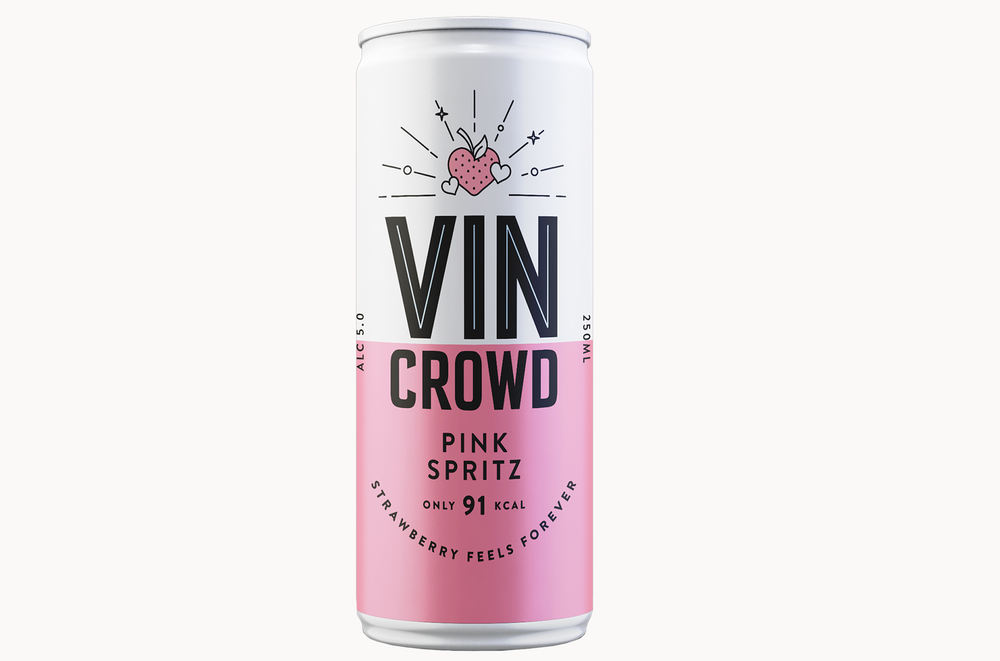
Kingsland is investing a lot in new packaging lines for cans and other formats
Kingsland Drinks Groups’ all round services are clearly a major draw and attraction for its core customers – the major multiples across the on and off-trade who can work on scale with the Kingsland teams.
But Baker is also keen to stress its work is not all about servicing the big operators and has strong partnership with regional wholesalers, right through to individual projects with independent merchants.
Kingsland Drinks Group is also a wine agent and distributor in its own right and works with a number of brands and producers around the world to get their brands to the right market. A part of the business that has really moved at pace since it acquired Stratford Wines in 2012, followed by Bottle Green in 2015.
Baker sees it as one big “balancing” act, where it’s vital the company really understands the need of its customers and where it can add the most value. It is equally important to say no and suggest alternatives ways of working with some customers. Like bottling in the UK.
“To bottle in the UK you have to be of a certain scale. It does not make sense to bottle one tank a year. It is actually better to work with that producer on an agency basis where we can act as their partner in the UK and help them build their business that way.”
Buying power
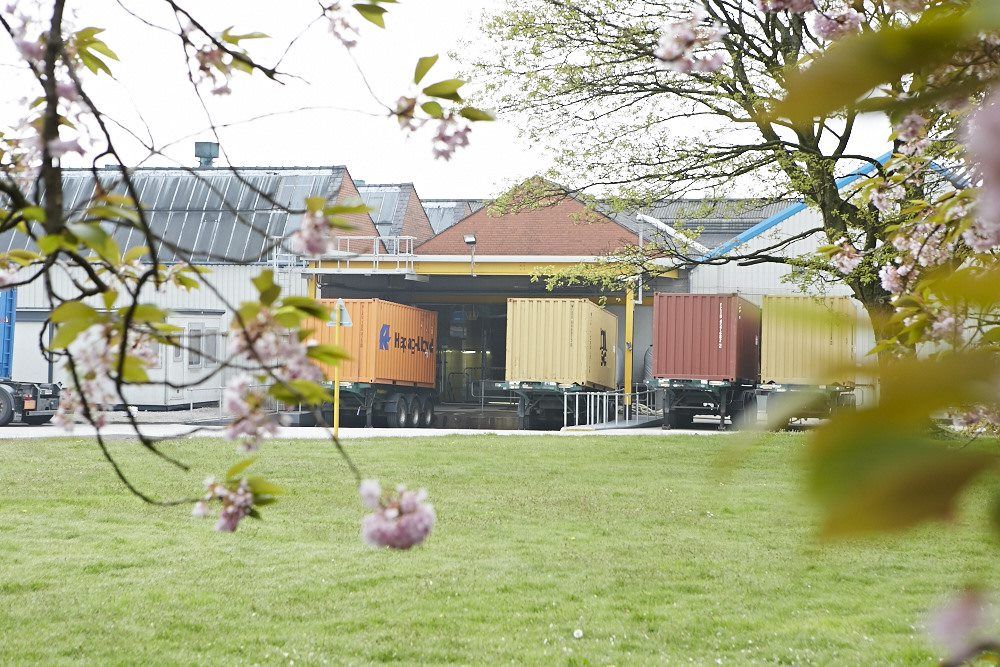
Kingsland has the scale and resources to source wines from all over the world
Handling so many millions of litres of wine a year gives Kingsland a strong foothold as a global wine buyer and has seven buyers as part of its team looking for opportunities around the world.
It means it has its ears and feet on the ground and can pick out problems in the supply chain long before they become a real issue and warn customers they need to moving to a plan B or plan C.
“Our customers can then lean on us and ask for more support when they need as they know we are working in different markets around the world.”
The major shortages of New Zealand wine, for example, over the last two vintages have had a ripple effect right down the supply chain. But Kingsland was well placed to look elsewhere in the world for the right priced wines, with the volumes needed, that matched up to the style of New Zealand Wine that customers are looking for. Its contacts in Chile and South Africa, in particular, have been crucial over the last few months, says Baker.
Knowing how the bulk wine industry works is very much part of Kingsland’s DNA as it has been buying, shipping and bottling bulk wine ever since it started as part of the Co-op in 1964.
Whilst even it can’t guarantee supply in such a turbulent global marketplace, it’s better placed than most to know where to look and how to fix any problem a drinks business has.
“Supply chains are not easy at the moment but, because of our scale, we can do our level best to keep our customers in stock. That said just in time dynamics have been put under severe strain.”
Managing expectations
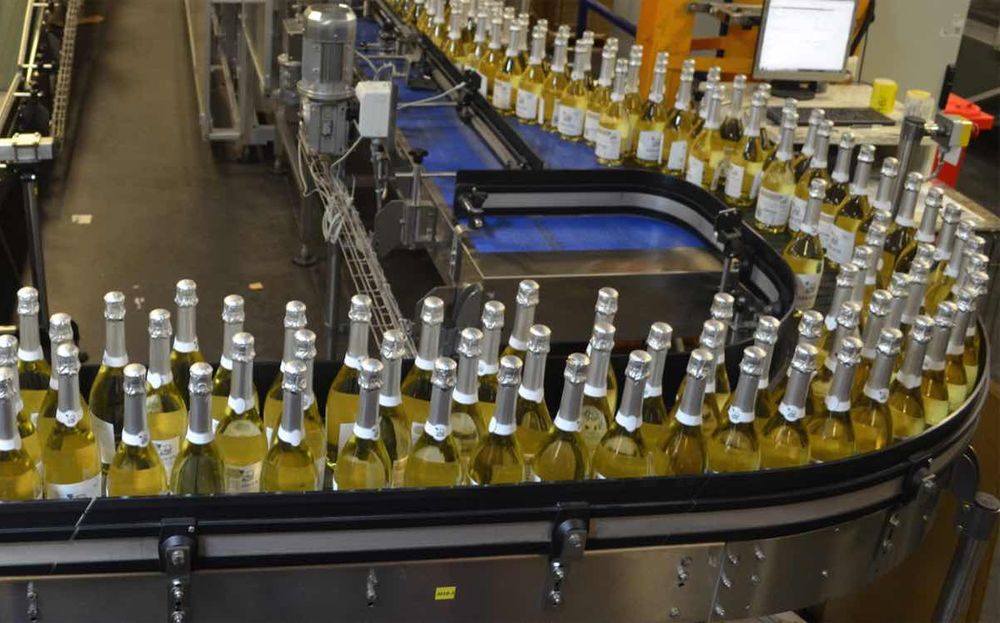
Kingsland has invested in new packaging capabilities like its new carbonated line
A key part of Baker and his team’s role is managing expectations and talking to its customers on a constant basis so that they are aware of issues coming up so they can plan accordingly.
“We are able to have conversations with our customers. Let them know, for example, that there is nothing, say, coming out of California for a while and there is nothing we can do about that, but there are alternatives to supply.”
By ensuring it keeps in close contact with its customers it can hopefully demonstrate it is doing all it can to fix any issues that come up. “We are hand on heart doing the best we can for them,” says Baker. “That’s the key to having an open and transparent relationship. We are all going to handle the situation together.”
It’s not just the supply chain where suppliers and customers have to be completely open with each other, says Baker. There are now so many more macro issues relating to Brexit, Covid, the global supply chain, trade tariffs and increasingly sustainability rules and regulations that businesses really do need to act in partnership to get them through them all.
“We are, where we can, putting in extra lead time and making longer term commitments to our suppliers,” he says.
The upside to all this current uncertainty, however, could result in a “less reactive supply chain” down the line, claims Baker.
Thirsty Earth – Sustainability challenge
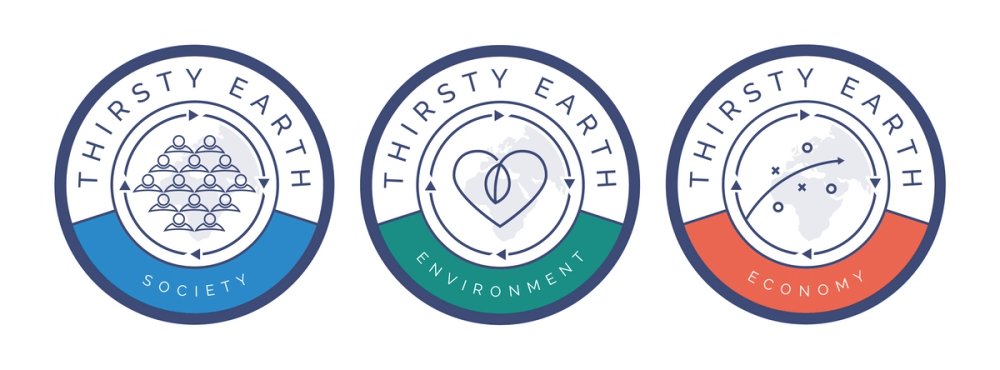
Thirsty Earth is Kingsland’s dedicated initiative to tackle climate change
The very nature of the business – shipping millions of litres of wine around the world to be bottled in the UK – means Kingsland has always been driven by a sustainable business plan. It is now in a position, thanks to the growth in the business and scale of its customers, to be able to make an even bigger impact on the overall sustainability of its part of the wine supply chain.
“Sustainability has been part of what we do,” confirms Baker. “We were the first business to bring bulk wine to the UK in the 1960s.”
Just the bulk side of the business means it is operating with 40% less carbon footprint, says Baker, who believes there is still an untold, positive story about bottling in the UK that needs to be shared with consumers.
It is looking to tell more of its own sustainability story through a new umbrella brand, Thirsty Earth, which will help drive all the ambitious environmental goals and targets it has set itself in the coming years.
Noticeably Kingsland Drinks wants to make an immediate, medium and long term impact to climate change. The Thirsty Earth strategy has deliberately set hard targets to be achieved by the end of 2022 rather than measures that could kick the sustainability agenda down the road.
There are three core pillars under its Thirsty Earth strategy:
- Society, which focuses on charity, wellbeing, inclusion, and equality.
- Environment, which looks at energy and emissions, waste, renewable energy, recycling and reuse.
- Economy, which includes responsible sourcing and ongoing investment.
“Although we are in challenging times, it’s important we are not complacent, and we continue to show commitment with real goals that will help make a positive difference to society and the environment in the years ahead,” says Baker.
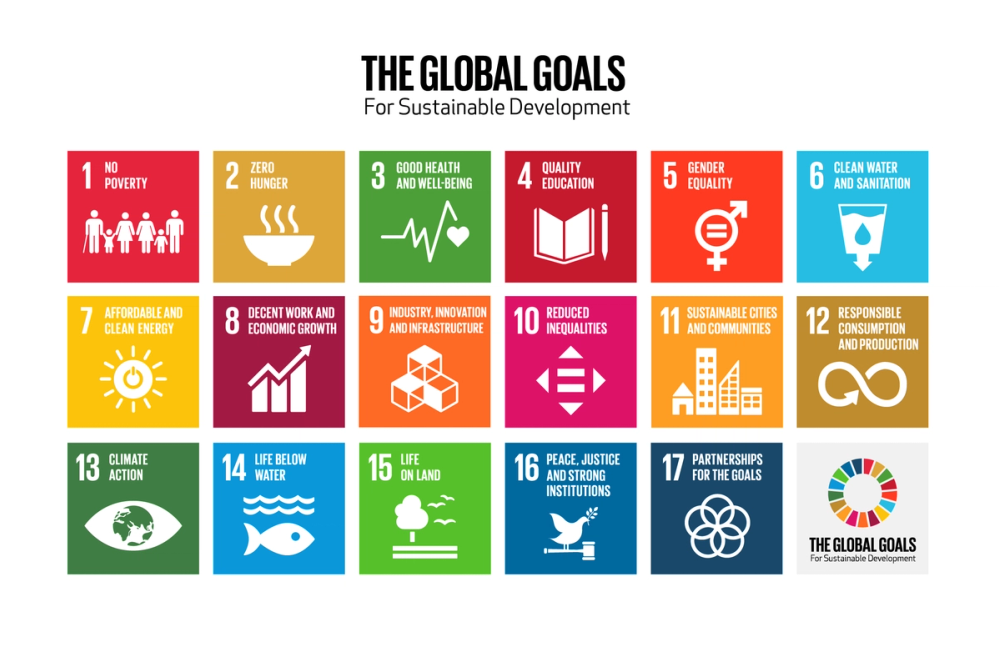
Kingsland has set itself both short term and long term goals to achieve
One immediate challenge will be to ensure all its primary and secondary packaging is in recycling schemes by the end of the year so that it can hit a target of 92% recyclable waste by the end of 2022.
From a societal point of view it wants to have six mental health champions trained and working in the business by the end of the year and to raise £10k to be invested in local wellbeing projects in the community.
Then in terms of economic impact it is looking to train 95% of all its colleagues in how to use and implement green measures in their every day work in order to cut down on waste.
It is also working with a number of “purpose-driven” brands like The Hidden Sea, the Australian wine brand, that uses its sales to remove plastic from the world’s oceans and has the bold aim of removing one billion plastic bottles by 2030.
It has set up a “conscious” premium drinks company Ten Locks, headed up by Becky Davies, which only looks to work with a “portfolio of purpose-led brands striving for positive change”.
“We believe we should have yearly goals. We hope we achieve them and are focused on achieving them,” says Baker. “These are not pie in the sky pledges but what we know we can deliver.”
Employee owned
The Thirsty Earth pledges are emblematic of its employee ownership which took place last June as it fits with our long term ethos of all working together.
The business is now owned by a trust on behalf of all members of staff and this will drive a sense of natural unity and a one for all mentality. Baker says that the business looked outside of the sector for inspiration to see what other employee-owned business do like Richer Sounds and John Lewis and Parfetts Cash & Carry.
He strongly believes the employee model will give the business the energy and drive it needs to be do better and grow. “Our employees are critical to building our future success and should participate in it too. I am confident it will bring big changes to how we work. It’s the right way forward for us.”
What next?
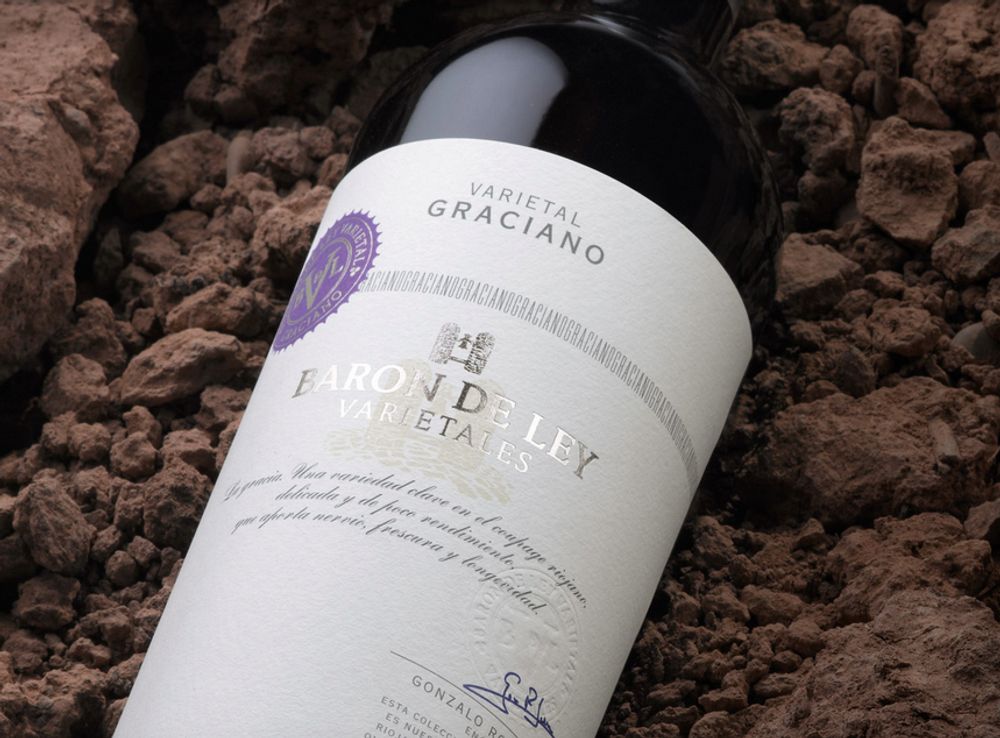
Kingsland also works with a number of major producers to provide agency wines to the market as well
Baker also has part of his attention on planning for the future and therefore plays an active role in supporting and working with the Wine & Spirit Trade Association. He says the industry is still coming to terms with Brexit and that the full impact has not been seen due to the pandemic.
The concept of the UK being a hub for bulk and bottling services for the European market is no longer logical. However, sustainability and supply chain shifts may result in more wine and other drinks being bottled in the UK for the UK market.
“Some opportunities have disappeared from the sector but others may arise,” is how he puts it.
“Things are more regulated than they have been in the past. The current government is making it harder for business with a lot of bad legislation,” he says pointing at the packaging waste regulations.
The proposed deposit bottle return scheme for glass – which has now been thrown out in England and Northern Ireland, is still active in Scotland and Wales – could result “in a very disunited United Kingdom” warns Baker, with different SKUs at different prices depending on where you are in the country.
“There are a number of challenges that the industry will have to face. We still don’t know how we are going to have to label our products after Brexit.”
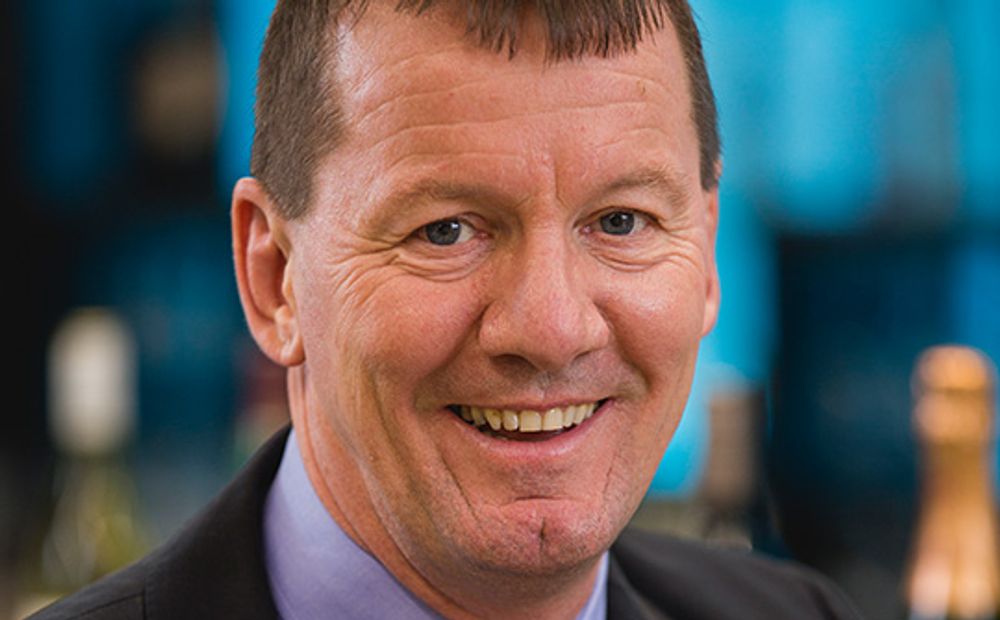
Kingsland has appointed former WSTA chairman and Pernod Ricard UK managing director Denis O’Flynn as a non-executive director to help with its corporate strategy
It’s why he believes the WSTA has such a vital role to play, continuously making the case, setting out the facts, and presenting “evidence based” arguments to government departments.
“We need to work our way through what a particular piece of legislation means and how it can be most sensibly applied,” he says. “Politicians don’t know the consequences of their actions.”
That’s before we talk about the cost of living and energy crisis, increased packaging, bottling labelling and dry good costs and the threat of all the changes to the alcohol duty tax system.
“There are no magic wands and some of these extra costs are going to have to be passed on to the consumer,” he says. “Inflationary pressures are going to be felt in the category. There is nowhere else for it to go.”
But Baker, by nature, is a positive, very much glass – or should that be bottle – half full type of business leader.
Whatever is thrown at the sector, he is confident it will find ways to navigate its way through. His job to make sure that Kingsland Drinks Group is playing its part in more areas of the pitch than most wine suppliers play on to deliver what the industry as a whole needs.
- To find out more about Kingsland Drinks go to its website here.
- Kingsland Drinks is a partner of The Buyer.
